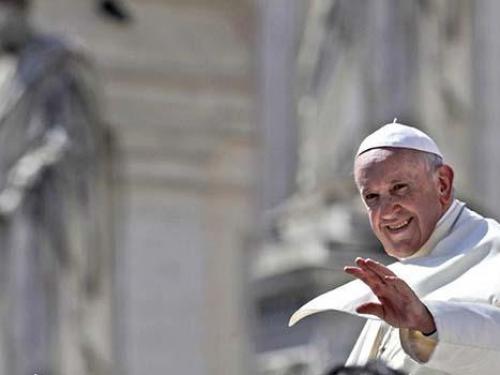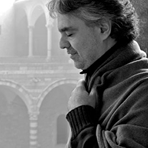Le visite dei pontefici


L'intervista al Papa: lavoro, Europa e migranti
Pubblichiamo integralmente un'intervista fatta a Papa Francesco in lingua inglese, diversi i temi trattati tra cui il lavoro, l'economia e i migranti. Questioni di attualità e di una centralità assoluta. Temi che talvolta generanoi un acceso dibattito.
Your Holiness, an old African proverb states: “If you want to go fast, go alone. If you want to go far, go together.” We all know how fast we can run, thanks to the new tools of technological innovation, in communication – also between people – and in the economy. But the deep crises that have occurred, along with an enduring and widespread uncertainty, seem to have lowered and darkened our horizons. The British government has even created a ministry to handle “loneliness”. Would you adopt the proverb yourself?
This proverb expresses a truth: the individual can be good, but growth is always the result of the commitment of everyone to the good of the community. In fact, individual abilities cannot materialise outside a favourable community environment, since you cannot think that the end result is simply the sum of individual abilities. I say this not to demean individuals or fail to recognise each person's talents, but to help us not forget that no one can live isolated or independent from others. Social life is not made up of the sum of individuality, but by the growth of a people.
How could one manage to be “inclusive”?
Seeing humanity as one unique family is the first way of being inclusive. We are called upon to live together and make space to welcome the collaboration of everyone. If we look around us with an open heart, we cannot miss the many, many precious stories of support, closeness, attention, voluntary acts, which allow us to understand first hand that solidarity extends more and more. If the community in which we live is our family, avoiding competition to embrace reciprocal aid becomes simpler. Like what occurs in the families we belong to, where real growth, the type that does not create excluded people and throwaways, is the result of relations sustained by tenderness and by mercy, not by the yearning for success and the strategic exclusion of those who live beside us. Science, technology and technological progress can make actions faster, but the heart is exclusive to the person to add a supplement of love in relationships and in institutions.
Not having a shared project on the reduction of inequalities in a system that is increasingly globalised can lead to what you call “the throwaway economy” where people themselves become “throwaways”. In the latest document (“Oeconomicae et pecuniariae quaestiones – Considerations for an ethical discernment regarding some aspects of the present economic system”), the Holy See affirmed that the economy needs ethics that are “people-centred” in order to function correctly. Can you explain this point to us?
First of all, a clarification on the idea of throwaways. As I wrote in the Evangelii Gaudium: this is not simply the phenomenon known as an act of exploitation and oppression, but a truly new phenomenon. With the action of exclusion, we strike at the very root of the bonds of belonging to the society we belong to, since in this we are not just relegated to the basements of existence, in the peripheries, we are not just deprived of any power, instead we are flung out. The person excluded is not exploited but is completely rejected, that is, considered to be trash, leftovers, and so driven out of society. We cannot ignore the fact that an economy structured in this way kills because it puts money at the centre and obeys money alone: when the person is no longer at the centre, when making money becomes the primary and sole aim, we are outside ethics and structures of poverty, slavery and throwaways are created.
Does that mean we are in a context of values that is an enemy of the person?
We have ethics that are not people-centred when, almost with indifference, we are not capable of lending an ear and feeling compassion faced with the cry of pain of others, we do not shed tears faced with the tragedies that consume the life of our brothers, nor do we take care of them, as if they were not our responsibility as well, outside our remit. People-centred ethics become a strong incentive for conversion. We need conversion. There is lacking awareness of a common origin, of a belonging with a common root of humanity and of a future to build together. This basic awareness would allow for the development of new convictions, new attitudes and lifestyles. People-centred ethics tend toward the overcoming of the rigid distinction between entities devoted to profit and those oriented not only toward the exclusive mechanism of profit, leaving a wide space for enterprises that constitute and expand the so-called third sector. These, without detracting from the importance and economic and social utility of the historic and consolidated forms of business, make the system evolve toward a clearer and more complete assumption of responsibility on the part of economic subjects. In fact, it is the very diversity of institutional forms of enterprise that generates a market that is more civil and at the same time more competitive.
In the same document in which the message is clear as to why financial activity should serve the real economy, and not vice versa, what stands out is the call on schools where managers and industry heads of the future are educated, in order to make them aware that economic models that only pursue quantitative models will not be capable over time of maintaining development and peace. Does this mean that managers should be trained, and then judged, also on the basis of parameters that are different from the current ones? Which ones?
It seems important to me to observe that no activity goes on by chance or autonomously. Behind every activity there is a human being. That person can remain anonymous, but there is no activity that exists that does not originate in man. The current centrality of financial activity in relation to the real economy is not random: behind this there is a choice by someone who thinks, mistakenly, that money is made with money. Money, the real kind, is made with work. It is work that confers dignity to man, not money. The unemployment that is affecting several European countries is the consequence of an economic system that is no longer capable of creating work, because it has placed an idol at its centre, which is called money. And I add, thinking of the workers I met in Sardinia: hope is like the embers under the ashes, let us help each other with solidarity, blowing on the ashes. Hope, which is not mere optimism, takes us forward. We all have to support hope, it is ours, it is something that belongs to everyone, for this reason I often say also to young people, do not let anyone steal your hope. We have to be smart, because the Lord makes us understand that idols are smarter than us, he invites us to have the shrewdness of the serpent with the innocence of the dove.
Shrewdness and innocence to fight against the idol of money? How is that done?
At the moment there is an idol at the centre of our economic system, and that is not good: let us all fight together so that the family and people are at its centre, and we can go forward without losing hope. Distribution and participation in the wealth produced, the insertion of the company in the region, social responsibility, company welfare, wage equality between men and women, harmony between time for work and time for life, respect for the environment, recognition of the importance of man compared to machines, recognition of a fair salary and the capacity for innovation are important elements that keep the community dimension of a company alive. Pursuing integral development calls for attention to the themes that I just listed.
What is good for a company?
The way a company is considered has a strong influence on organisational, productive and distributive choices. You can say that acting well by respecting the dignity of people and pursuing the common good is good for a company. There is always a correlation between the action of man and business, the action of man and the future of a business. What springs to my mind is the Blessed Paul VI who I will have the joy of proclaiming a saint on October 14th, who in the encyclical Populorum progressio wrote that development “cannot be restricted to economic growth alone. To be authentic, it must be well rounded; it must foster the development of each man and of the whole man. As an eminent specialist on this question has rightly said: “We cannot allow economics to be separated from human realities, nor development from the civilization in which it takes place. What counts for us is man—each individual man, each human group, and humanity as a whole.””
The recent Vatican analysis document on the economic system that I have already referred to observed, above all, how “markets, as powerful propellers of the economy, are not capable of governing themselves. In fact, the markets know neither how to make the assumptions that allow their smooth running (social coexistence, honesty, trust, safety and security, laws, and so on) nor how to correct those effects and forces that are harmful to human society (inequality, asymmetries, environmental damage, social insecurity, and fraud).” Does this mean that the economy is not enough and in some way needs itself to be “saved”? What are, in your view, the “just” limits of profit?
Economic activity does not only concern profit but also includes relationships and meanings. The economic world, if it is not reduced to a purely technical question, does not only contain the knowledge of the how (represented by skills) but also of the why (represented by meanings). A healthy economy therefore is never unbound from the meaning of what it produces and economic action is always also an ethical fact. By keeping together actions and responsibility, justice and profit, production of wealth and its redistribution, functioning and respect for the environment, they become elements which over time guarantee the life of the company. From this point of view, the meaning of the company broadens and makes it clear that the sole pursuit of profit no longer guarantees the life of the company. Aside from these issues linked more directly to the company, we have to let ourselves be questioned by what lies around us. It is no longer possible for economic operators to not listen to the cries of the poor. Again Paul VI – and I want to quote him fully here for his importance – affirmed in the Populorum progressio that “the principle of free trade, by itself, is no longer adequate for regulating international agreements”. Its advantages are certainly evident when the contracting parties find themselves in conditions of economic power that are not too disparate: then it is an incentive for progress and compensation for the effort achieved. This explains therefore how industrially developed countries tend to see a law of justice in it. This changes however when the conditions have become too unequal from country to country: prices that form “freely” on the market can, then, lead to unfair results. It is useful to recognise this: it is the fundamental principle of liberalism as a rule of commercial trade that is called into question here. The teaching of Leo XIII in the “Rerum novarum” maintains its validity: the consensus of the two parties, if they come into excessive inequality, is not enough to guarantee the justice of the contract, and the law of free consent remains subordinate to the demands of natural law. What was true regarding the just individual wage – wrote my venerated predecessor Paul VI – is also true regarding international contracts: “trade relations can no longer be based solely on the principle of free, unchecked competition, for it very often creates an economic dictatorship. Free trade can be called just only when it conforms to the demands of social justice.”
The Sole 24 Ore – like Radio 24 and the news agency Radiocorplus – is the newspaper of Confindustria, the organisation of Italian employers which represents 160,000 companies, the vast majority of which small and medium-sized. Italian industrialists are fighting for an open and inclusive society. What is necessary, in your view, to ensure a business leader is a “creator” of value for their company and for others, starting from the community in which they live and work? By reading the Gospels it emerges that Jesus shows great sympathy for entrepreneurs who take on a risk (if you think of the Parable of the Talents).
I remember the meeting that I had with Confindustria in February 2016. I remember many faces, behind which were passion and projects, effort and genius. I said that I consider attention to the real person very important, which means giving each person their due, pulling mothers and fathers away from the anguish of not being able to give a future and not even a present to their own children. It means knowing how to manage, but also knowing how to listen, sharing projects and ideas with humility and trust. It means ensuring that work creates more work, responsibility creates other responsibilities, hope creates other hope, above all for young generations, who today need it more than ever. I believe it is important to work together to build the common good and a new humanism at work, promote work that is respectful of the dignity of the person which does not only look to profit or productive needs but promotes a dignified life, knowing that the good of people and the good of the company go hand in hand. Let us help each other to develop solidarity and to create a new economic order that does not generate more throwaways, enriching economic action with attention to the poor and the reduction in inequalities. We are in need of courage and creative genius.
When lacking, work becomes an intolerable emergency, both personal and social. Non the less work is often perceived as a sort of daily sentence, an unbearable routine. Can you point out, for example, two reasons why it is not, or at least it does not have to be, and the ways in which companies can strive to ensure that it is not, with this itself contributing also to the success of the companies themselves and the prosperity of society?
The idea that work is just strain is quite widespread, but everyone knows that not having a job is much worse than working. How many times have I gathered up tears of desperation from fathers and mothers who no longer have work! Work does good because it is linked to the dignity of the person, to their capacity to assume responsibility for themselves and for others. It is better to work than to live in idleness. Work brings satisfaction, it creates the conditions for personal vision. Earning one's bread is a healthy reason for pride; surely it brings effort with it too, but it helps us to maintain a healthy sense of reality and teaches us to face life. People who support themselves and their family though their own work develop their dignity: work creates dignity. Benefits, when not linked to the clear objective of taking up work and employment again, create dependence and deprive people of responsibility. Furthermore, work has a high spiritual significance since it is the way with which we give continuity to creation, respecting it and caring for it.
What contribution do you ask of companies?
Companies can provide a strong contribution to ensure that work maintains its dignity, recognising that man is the most important resource of every company, working toward the construction of the common good, paying attention to the poor. I know that in many companies, the right space is given to training. I am convinced it would greatly benefit a company to complete technical education with training in values - solidarity, ethics, justice, dignity, sustainability - meanings are content that enrich thought and operational capacity.
The globalised world has in some way become small, by now we have reached the limits of what you call our common home, that is planet Earth, to the point that plans are being made to colonise other planets. Ecology and a sustainable world are a major concern of yours and the big international players in the energy sector themselves, starting from Italy's Eni, have announced “green” revolutions. Do you believe that enough is being done on this front?
There is still a lot to do to reduce behaviours and choices that do not respect the environment and the Earth. We are paying the price of an exploitation of the Earth that has lasted for many years. Nowadays also, unfortunately, in many situations, man is not the protector of the Earth, but a tyrannical exploiter. There are signs however of a new attention toward the environment; it is a mentality that gradually is being shared by an increasing number of countries. This is a course that needs particular attention because it is necessary to move from a description of symptoms to the recognition of the human root of the ecological crisis, from attention to the environment to an integral ecology, from an idea of omnipotence to an awareness of the scarcity of resources. The key point is that speaking of the environment always means also speaking of man: environmental degradation and human degradation go hand in hand. Indeed it is often only the poor who are made to pay for the consequences of the violation of creation. The development of the ecological dimension requires the convergence of several actions: political, cultural, social and productive. In particular, the formation of a new ecological awareness needs new lifestyles to construct a harmonious future, promote integral development, reduce inequalities, discover the link between creatures, and abandon consumerism.
Does that mean there is a need to change the model of production?
As I wrote in the encyclical Laudato si', these problems are intimately linked to the throwaway culture, which hits the human beings who are excluded as much as the things that quickly turn into trash. Let us think, for example, of our industrial system, which at the end of the production and consumption cycle, has not developed the capacity to absorb and reutilise waste and refuse. We have not yet managed to adopt a production model that ensures resources for all and for future generations, and that requires limiting as much as possible the use of non-renewable resources, moderating consumption, maximising energy efficiency, reusing and recycling. Facing this question would be a way to tackle the throwaway culture, which ends up damaging the entire planet. We have to admit that there remains a lot of work to be done in this direction.
Among the “throwaways” of the Earth are the migrants that move from one continent to the next, fleeing wars or in search of conditions to live and survive. In a period of history which sees borders (also commercial borders) closing, and nationalism prevailing in a tired and divided Europe, do you not feel a bit like a contemporary Moses who opens the way, opens the doors for all peoples and persons, starting from the poorest? There are those who think that this is not the mission of the Successor of Peter. Why on the other hand do you believe it is? And what does this Europe need to rediscover a common route together to respond to the fears of its citizens?
Nowadays migrants represent a great challenge for everyone. Poor people that move frighten well-off communities especially. Yet a peaceful future for humanity does not exist if not in the welcoming of diversity, solidarity, in thinking of humanity like one unique family. It is natural for a Christian to recognise Jesus in every person. Christ himself calls upon us to welcome our migrant and refugee brothers and sisters with arms wide open, perhaps taking part in the initiative that I launched in September last year: Share the Journey. The journey, in fact, is made in two: those who come to our land, and we who go toward their heart to understand them, understand their culture, their language, without ignoring the current context. This would be a clear sign of a world and a Church that try to be open, inclusive and welcoming; the Church becomes a mother who embraces everyone in the sharing of a common journey. Let us not forget, as I already said previously, that hope is the motivation in the heart of those who leave their home, land, sometimes family and relatives, to look for a better life, more dignified for themselves and for those they hold dear... hope is the motivation to “share the journey” of life, let us not be afraid of sharing the journey! Let us not be afraid of sharing hope. Hope is not a virtue for people with their stomachs full and for this reason, the poor are the first carriers of hope and are the protagonists of history.
But how should Europe move, in practice?
Europe needs hope, and a future. Openness, driven by the wind of hope, to the new challenges posed by migration can help toward the construction of a world in which we do not speak only of numbers or institutions but also of people. Among migrants, as you said, there are people looking for “conditions to live or to survive”. For these people who are fleeing misery and hunger, many business leaders and as many European institutions, who are not lacking in genius and courage, could undertake courses of investment, in their countries, in education, from school to the development of true cultural systems, and above all in work. Investment in work that means accompanying the acquisition of skills and the launch of a development that can become an asset for the countries that are still poor today, giving the dignity of work to those people and to their country the capacity to weave positive social bonds capable of building just and democratic societies.
The Vatican is in Italy and you are the bishop of Rome. But the Italian people have shown wide approval for the political forces defined as “populist” that do not agree with the opening of the country's doors to migrants. How are you experiencing this divergence between sheep and shepherd?
The responses to the calls for help, even if generous, were maybe not sufficient, and today we find ourselves crying over the thousands of deaths. There have been too many silences. The silence of common sense, the silence of “we have always done it this way”; the silence of “the us always counterposed with the them”. The Lord promises relief and liberation to all the oppressed of the world, but he needs us to make his promise effective. He needs our eyes to see the necessities of our brothers and sisters. He needs our hands to provide aid. He needs our voice to condemn the injustices committed in the silence, sometimes complicit, of many. Above all, the Lord needs our heart to show the merciful love of God toward the last, the rejected, the abandoned, the marginalised.
In what way can we create a course of integration that is capable of overcoming fears and worries, that are real?
We should not stop being witnesses of hope. Let us widen our horizons without being consumed in present worry. Just as it is necessary for migrants to be respectful of the culture and laws of the country that welcomes them, so as to jointly implement a course of integration and to overcome all the fears and concerns. I entrust these responsibilities also to the prudence of governments, so that they find shared ways to give a dignified reception to many brothers and sisters begging for help. A certain number of people can be received, without excluding the possibility of integrating them and setting them up in a dignified way. It is necessary to pay attention to illegal trafficking, aware that welcoming is not easy. Here I remember what I wrote this year in the message for the Global Day of Peace: four milestones for action, that I love to express through the verbs “welcome, protect, promote and integrate”, and I underline that 2018 will lead to the definition and approval on the part of the United Nations of two global pacts: one for safe, ordered and legal migration, the other regarding refugees. These are pacts that will serve as a reference framework for political proposals and practical measures. For this reason, it is important that our projects and proposals are inspired by compassion, far-sightedness and courage, in order to seize every chance to advance the construction of peace: this is the only way for the necessary realism of international politics to avoid surrendering to disinterest and the globalisation of indifference.
Translation by Catherine Hornby for Il Sole 24 Ore
Cari amici la rivista San Francesco e il sito sanfrancesco.org sono da sempre il megafono dei messaggi di Francesco, la voce della grande famiglia francescana di cui fate parte.
Solo grazie al vostro sostegno e alla vostra vicinanza riusciremo ad essere il vostro punto di riferimento. Un piccolo gesto che per noi vale tanto, basta anche 1 solo euro. DONA


